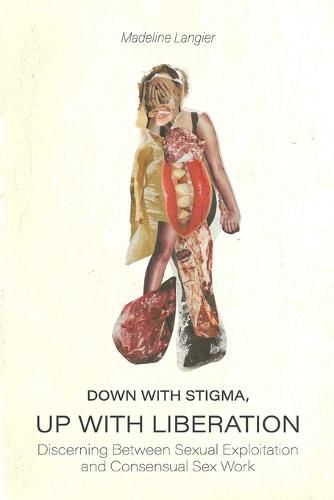Readings Newsletter
Become a Readings Member to make your shopping experience even easier.
Sign in or sign up for free!
You’re not far away from qualifying for FREE standard shipping within Australia
You’ve qualified for FREE standard shipping within Australia
The cart is loading…






This title is printed to order. This book may have been self-published. If so, we cannot guarantee the quality of the content. In the main most books will have gone through the editing process however some may not. We therefore suggest that you be aware of this before ordering this book. If in doubt check either the author or publisher’s details as we are unable to accept any returns unless they are faulty. Please contact us if you have any questions.
In Canada, sex workers continue to experience stigma and criminalization despite changes to the policy. In many regions across the globe, the consensual sale of sex is criminal, thereby limiting fundamental human rights and dictating persons' right to bodily autonomy. While consent is the primary element of the rights of sex workers, a problem arises when the industry becomes exploitative. Exploitation in the sex industry is the course leading to sex trafficking and rape for profit. Crime and harm flourishes in the dark hidden areas of the world, which is why an ongoing conversation about the differences between consensual sex work and sex trafficking is essential. In order to reduce stigma, we must continue to have difficult conversations about uncomfortable topics in the hopes that one day they no longer seem uncomfortable. Millions of people particulate in the sale of sexual services, and the clear distinction between consensual and coerced forms can allow for the decriminalization of sex work with attention to the needs of victims. The potential for harm is enough to drive legislation, and there is hope for a shift to harm reduction and empowerment. Victims of sexual exploitation and abuse will not wait for politics to catch up.
$9.00 standard shipping within Australia
FREE standard shipping within Australia for orders over $100.00
Express & International shipping calculated at checkout
This title is printed to order. This book may have been self-published. If so, we cannot guarantee the quality of the content. In the main most books will have gone through the editing process however some may not. We therefore suggest that you be aware of this before ordering this book. If in doubt check either the author or publisher’s details as we are unable to accept any returns unless they are faulty. Please contact us if you have any questions.
In Canada, sex workers continue to experience stigma and criminalization despite changes to the policy. In many regions across the globe, the consensual sale of sex is criminal, thereby limiting fundamental human rights and dictating persons' right to bodily autonomy. While consent is the primary element of the rights of sex workers, a problem arises when the industry becomes exploitative. Exploitation in the sex industry is the course leading to sex trafficking and rape for profit. Crime and harm flourishes in the dark hidden areas of the world, which is why an ongoing conversation about the differences between consensual sex work and sex trafficking is essential. In order to reduce stigma, we must continue to have difficult conversations about uncomfortable topics in the hopes that one day they no longer seem uncomfortable. Millions of people particulate in the sale of sexual services, and the clear distinction between consensual and coerced forms can allow for the decriminalization of sex work with attention to the needs of victims. The potential for harm is enough to drive legislation, and there is hope for a shift to harm reduction and empowerment. Victims of sexual exploitation and abuse will not wait for politics to catch up.